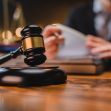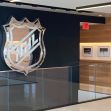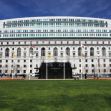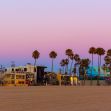Businesses around the country were hit hard by the COVID-19 pandemic. Quarantines and shut-in orders hit customer-facing enterprises the hardest, preventing restaurants, movie theaters, event centers and the like from earning revenue. Property insurance providers have denied claims brought by these companies under their “business interruption” policies, and most courts have sided with the insurers. The Los Angeles Lakers believe they may have found a workaround.
Business interruption coverage is a supplement to commercial property insurance. Policyholders are meant to be covered in the event that physical damage to their premises prevents the business from earning revenue. If a flood or fire destroys a restaurant, for example, the general property insurance policy covers the cost of repairs. The business interruption insurance covers the income lost while the structure is under repair.
Since the onset of the novel coronavirus, insurance providers have rejected business interruption claims arising from pandemic-related closures. Insurers rely principally on two arguments, which have been largely accepted by the courts: First, most property insurance policies now explicitly exclude losses caused by viruses. The virus exclusion arose in response to a wave of claims following the SARS outbreak in 2003.
Second, insurers have argued that business interruption policies are limited to loss of income caused by “direct physical loss” or “physical damage” to the premises. Business closure connected to potential viral exposure, even if mandated by the government, does not constitute a “physical loss” akin to fire or flood damage. Courts have also rejected arguments that the virus itself has a physical presence affecting the property.
The LA Lakers brought a business interruption claim, like many other companies. The basketball team claims losses connected to the closure of the Staples Center during the height of the pandemic. Their insurance provider rejected the team’s claims, arguing that “the presence of the virus” does not “constitute[] physical damage to insured property.” A prevailing California state appellate court decision rejected similar claims based on coronavirus-induced losses. Based on that decision, the federal district court agreed with the insurance provider and rejected the team’s claim for business interruption coverage.
The Lakers appealed, arguing their case is different. Although the trial court rejected the team’s business interruption insurance claim, the court allowed the team coverage under their general property insurance policy for the cost of cleaning or repairing surfaces damaged by the coronavirus. For the purposes of that claim, there was actual “physical alteration” caused by the virus.
The court rejected the business interruption insurance claim because the claimed loss--missed revenue resulting from the closure of the Staples Center--was caused by a government-ordered shutdown, rather than due to any actual “physical damage” caused by the coronavirus. The court concluded the shutdown (and subsequent loss) would have happened anyway because of the government orders. The policy covers government-mandated closures, but only when they result from “direct physical loss or damage to property away from, but within one mile of, the Lakers' covered property.”
The Lakers claim this presents a novel issue: They allege “two independent, concurrent causes of the business interruption—property damage, which is a covered peril, and government orders,” which the court has said are not. If two separate causes each would have independently led to the loss, one of which is covered and one of which is not, should the claim be covered?
The trial court granted the team’s request for an expedited appeal to review the allegedly novel issue. In this limited instance, because the court found that there was an actual physical alteration to the property and acknowledged the concurrent nature of the loss-causing stimuli, the team might have a shot.






